Have you ever experienced a traumatic event in your life, but didn’t realize the impact it had on your mental and emotional well-being? Let’s explore the complex reality of emotional trauma and identify the signs of emotional trauma in adults.
What is emotional trauma in adults?
Emotional trauma in adults refers to the psychological and emotional damage that can result from experiencing a highly distressing or traumatic event or series of events. This can include experiences such as –
- Physical or sexual abuse
- Neglect
- Witnessing violence
- Experiencing natural disasters
- Being involved in a serious accident
Emotional trauma is an often misunderstood experience that can have a profound impact on an individual’s mental and emotional well-being. It can lead to a range of symptoms of emotional trauma in adults, including anxiety, mood swings, substance abuse etc.
Emotional trauma can be a complex and difficult experience to cope with, but with professional help and support, individuals can learn to heal and move forward with their lives.
Related: 7 Behaviors Common Among Adults Who Went Through Trauma At A Young Age
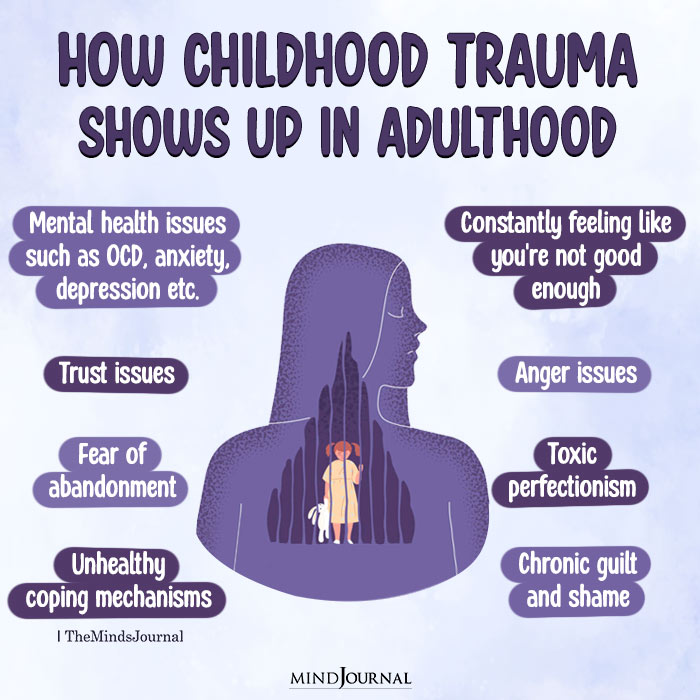
7 Signs of emotional trauma in adults
Unfortunately, many people who have experienced emotional trauma may not know how to recognize the symptoms of emotional trauma in adults or the extent of its impact on their lives.
Here are some of the most common signs of emotional trauma in adults –
1. Avoidance
One of the most common signs of emotional trauma in adults is avoidance. This can take many forms, including avoiding certain people, places, or situations that are associated with the traumatic experience.
For example, someone who was involved in a car accident may avoid driving, while someone who was a victim of domestic violence may avoid intimate relationships altogether.
Avoidance can be a way of coping with the overwhelming emotions associated with trauma, but it can also prevent individuals from fully engaging in their lives and pursuing their goals.
2. Hypervigilance
One of the basic symptoms of emotional trauma in adults is hypervigilance. This refers to a heightened state of awareness and sensitivity to potential threats.
Individuals who have experienced trauma may be constantly on guard, scanning their environment for signs of danger. This can lead to feelings of anxiety, fear, and paranoia, and can also make it difficult to relax and enjoy life.
3. Flashbacks
Flashbacks are another common sign of emotional trauma in adulthood. These are vivid and intrusive memories of the traumatic experience that can be triggered by certain sights, sounds, smells, or other sensory cues.
Flashbacks can be incredibly distressing, and can make it difficult for individuals to concentrate or engage in everyday activities.
4. Emotional numbness
Emotional numbness refers to a feeling of detachment or disconnection from one’s emotions. Individuals who have experienced trauma may find it difficult to feel joy, love, or other positive emotions, and may instead feel numb or emotionally deadened.
This can make it difficult to form meaningful relationships and can also contribute to feelings of depression and hopelessness.
5. Mood swings
Mood swings are one of the most common signs of emotional trauma in adults. Individuals who have experienced trauma may experience sudden and intense shifts in their mood, ranging from anger and irritability to sadness and despair.
These mood swings can be unpredictable and may interfere with an individual’s ability to function in their daily life.
6. Sleep disturbances
Individuals who have experienced trauma may have difficulty falling asleep, staying asleep, or may experience nightmares or other sleep disturbances. This can lead to feelings of fatigue, exhaustion, and irritability, and can also interfere with an individual’s ability to function during the day.
7. Substance abuse
Substance abuse is another common coping mechanism for adults who have experienced emotional trauma. Drugs and alcohol can provide temporary relief from the overwhelming emotions associated with trauma, but can also lead to addiction, health problems, and other negative consequences.
Individuals who are struggling with substance abuse in the aftermath of trauma may benefit from seeking professional help.
Related: 4 Ways That Childhood Trauma Impacts Adults
15 More symptoms of emotional trauma in adults
Here are a few more signs of emotional trauma in adults that you must know about –
- Chronic physical pain or illness
- Difficulty trusting others or forming close relationships
- Self-harm, suicidal thoughts, or attempts
- Feelings of shame, guilt, or worthlessness
- Intrusive thoughts about the traumatic event
- Difficulty regulating emotions or expressing them appropriately
- Difficulty concentrating or completing tasks
- Feelings of hopelessness or despair
- Low self-esteem or feelings of inadequacy
- Difficulty setting and maintaining boundaries
- Addictive behaviors such as gambling, shopping, or overeating
- Social isolation or withdrawal
- Hypersensitivity to criticism or perceived rejection
- Feeling stuck in a cycle of negative thinking or self-talk, such as blaming oneself for the traumatic event
- Engaging in self-destructive behaviors such as reckless driving or unsafe sex
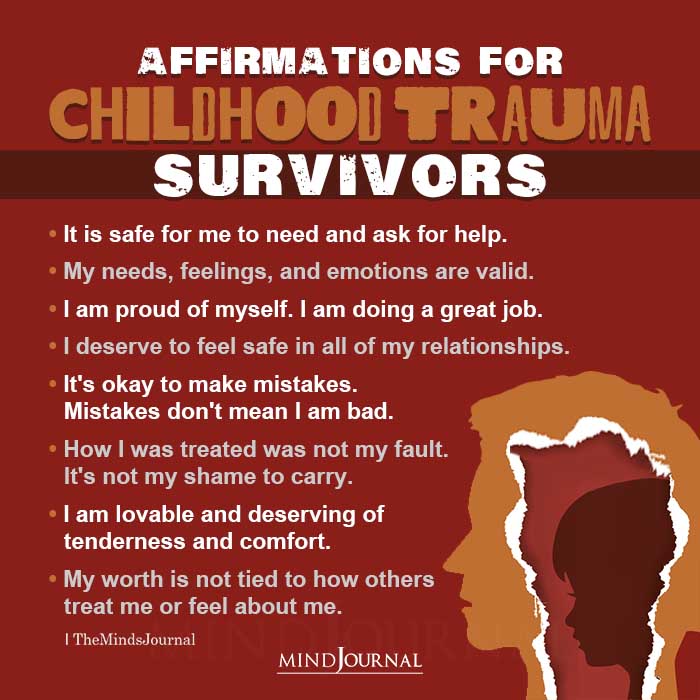
How to cope with emotional trauma in adults
Coping with the symptoms of emotional trauma in adults can be a challenging and complex process, but there are several strategies that can be helpful in promoting healing and recovery.
Here are some ways to cope with the signs of emotional trauma in adults –
- Seek professional help through therapy or counseling
- Practice self-care such as exercise, healthy eating, and mindfulness
- Build a support system of friends, family members, or support groups
- Educate yourself about trauma and its effects on the brain and body
- Use grounding techniques to stay present and manage anxiety
- Avoid self-medicating with drugs or alcohol
- Set boundaries and prioritize your own needs and well-being
- Practice self-compassion and be patient with the healing process
Related: 5 Steps To Heal An Emotional Wound
Healing is possible
The signs of emotional trauma in adults can be varied and complex, and can have a profound impact on an individual’s life. Recognizing these signs is an important first step in beginning the healing process.
If you or someone you know is struggling with emotional trauma, it is important to seek professional help. Therapy, support groups, and other forms of treatment can help individuals learn to cope with the effects of trauma and begin to build a brighter future.
Remember, healing is possible, and recovery is within reach.
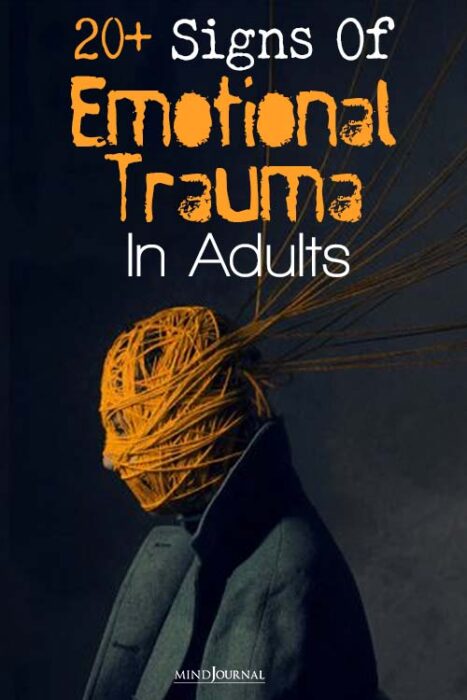
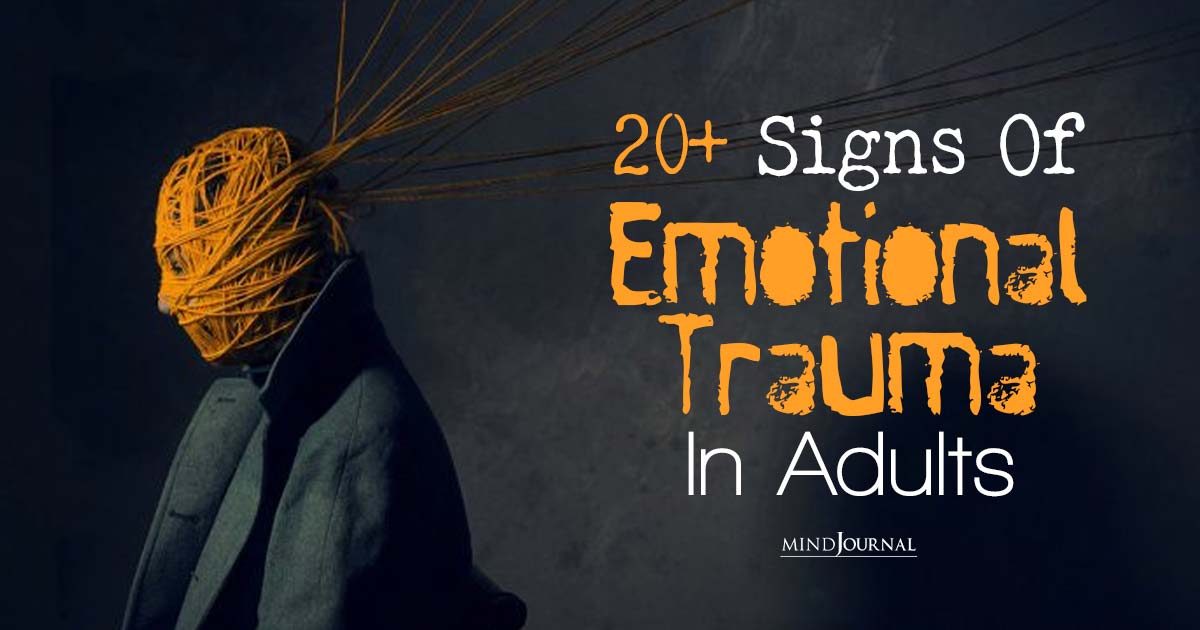





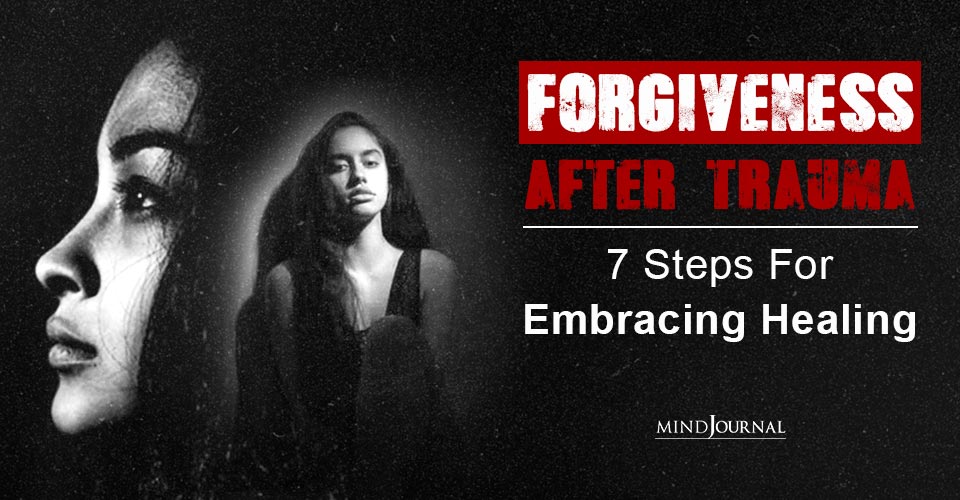

Leave a Reply
You must be logged in to post a comment.